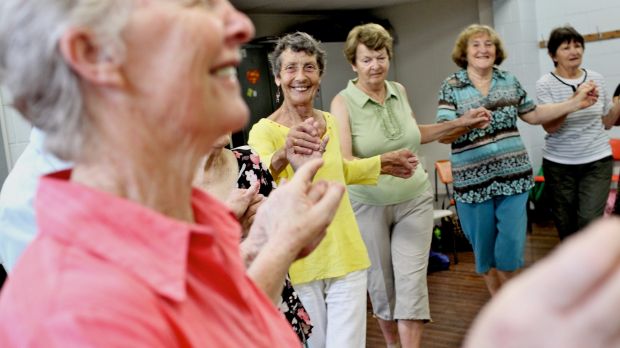
We are certainly living much longer, and we’re set to live longer still.
Here’s the good news: We’re living longer. Here’s the bad news: There isn’t any.
The idea that living longer will make us infirmed for longer and a burden on society for longer has been central to the government’s narrative about ever-rising health costs.
Old age isn’t a problem. It’s what we are trying to achieve.
It started within months of the minister being sworn in. Preparing the ground for a Medicare co-payment Peter Dutton said health spending was on an “unsustainable path”. The cost of the Medical Benefits Schedule (Medicare) was “spiralling”.
“The use of MBS services increases as people get older, with those aged over 65 accessing an average of 33 MBS services in a year, while younger people access around 11 services per year,” he told the the Committee for Economic Development of Australia.
Combined with talk of an ageing population it made it sound as if living longer was part of the problem, as did his wildly overstated talk about the increased incidence of dementia.
“The fact is 170 people per week today are being diagnosed with dementia, but in a number of years it’ll be 7500 a week,” he told Lateline while trying to sell the co-payment.
The ABC fact checking unit ran its ruler over his claim and found that rather than increasing fortyfold over a number of years, as the minister had said dementia was set to treble over 40 years.
We are certainly living much longer, and we’re set to live longer still. But living longer isn’t meaning living longer infirmed or hooked up to machines.
When the Australian Institute of Health and Welfare delivered the good news in the lead up to Christmas you might have expected the Health Minister to trumpet it. I would have. It means we’ve little to fear from our extra years. We might get more bored or have more financial problems, but we are unlikely to be too much more incapacitated. Instead the minister said little, bunkering down yet again to find another way to get us to pay more for visits to the doctor.
Here’s what the institute found. Its report is entitled Healthy life expectancy in Australia: patterns and trends 1998 to 2012.
Between 1998 and 2012 the life expectancy for newborn boys grew from 75.9 years to 79.9 years – an extraordinary increase in such a short time. In little more than a decade Australian men gained an extra four years.
But how many of those extra years are good ones, disability-free?
The institute’s remarkable finding is that men have gained an extra 4.4 years of disability-free life. Not only are Australian men set to live four years longer, but less of their lives are likely to be incapacitated.
It doesn’t mean that medical expenses aren’t climbing. They are climbing because more of us are getting old and also because medicine is getting more expensive. But it does mean that our longer lifespans aren’t responsible for that much of the extra expenses. At least not for men.
For women the picture is (slightly) less rosy. Between 1998 and 2012 the expected life for a newborn girl climbed from 81.5 years to 84.3 years – an increase of 2.8 years.
The increase in the number of disability-free years was slightly less (2.4 years) meaning that most – but not not all – of the extra years were disability-free. In terms of value for money whatever is driving those extra years looks like a good deal, an even better deal for men.
Better still, the estimates of 79.9 years for men and 84.3 years for women almost certainly understate how long we will live. The government actuary points in a separate report that 60 per cent of newborn boys and girls live longer than their life expectancies, and that’s before likely improvements in medical technologies over the course of their lives are taken into account. That’s because life expectancies are averages, and the averages are weighed down the relatively large number of babies who die before they turn one.
The actuary says a boy born today can expect 85.6 years on a not-so-optimistic view about technology, 90.5 on a better view. A girl born today can expect 90 years or 92.2.
A man who is now 30 can expect 84 years or 88, a woman 88 or 90. A man who is about to turn 65 can expect 85 or 86, a women 88 or 88.6.
Around half of us will live longer than those estimates, and we’ll do it without putting too much more strain on the health system.
Old age isn’t a problem. It’s what we are trying to achieve. Dutton’s replacement Sussan Ley would get off to a good start by celebrating rather than demonising our incredible good fortune.
Peter Martin is economics editor of The Age.
Twitter: @1petermartin
